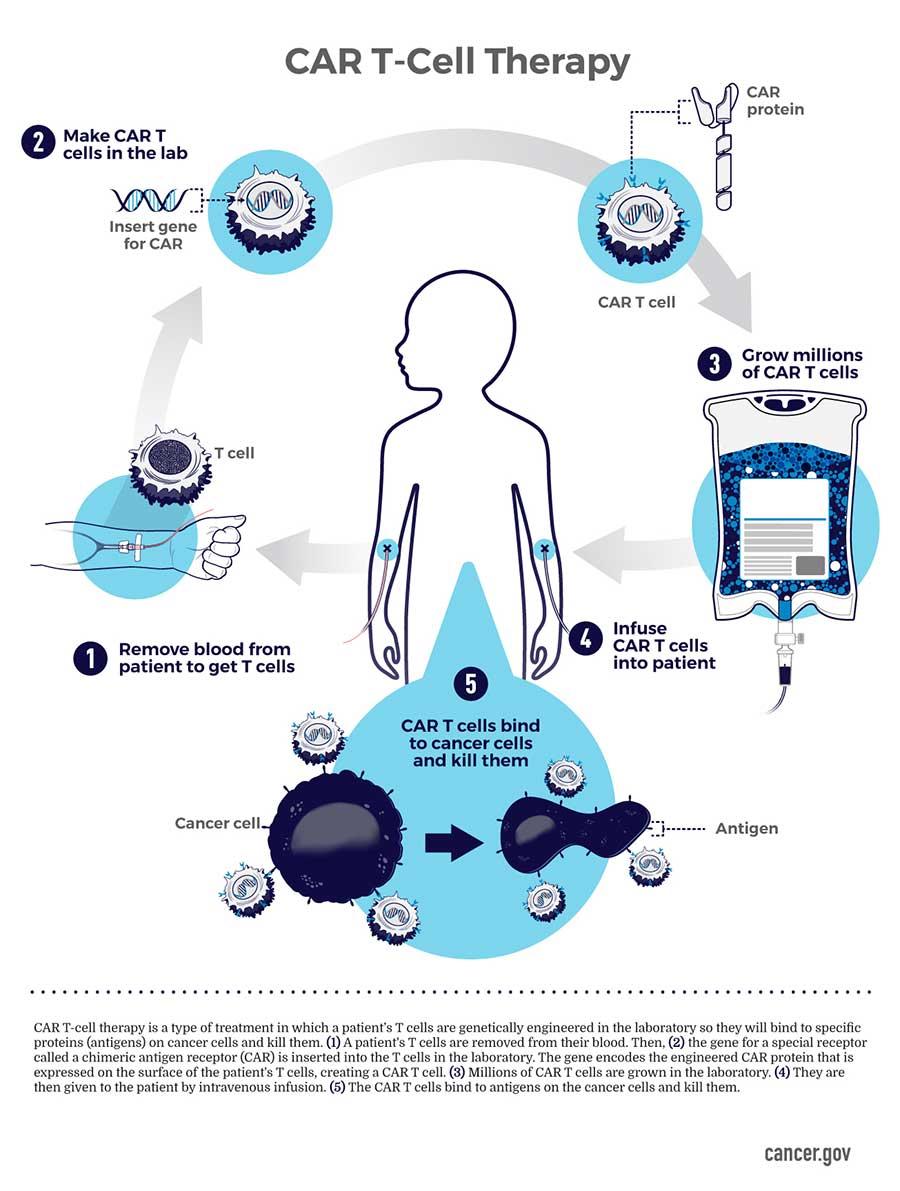CAR-T Cell Therapy
2023 OCT 16
Preliminary >
Science and Technology > Biotechnology > Genetic engineering
Why in news?
- India’s Drug Controller General (DCGI) has granted market authorization for CAR-T (Chimeric Antigen Receptor-T) cell therapy developed by ImmunoACT, a spin-off company from IIT-Bombay.
About CAR-T Cell Therapy
- CAR-T cell therapy, which stands for Chimeric Antigen Receptor T-cell therapy, is an innovative and personalized approach to treating certain types of cancer.
- CAR-T cell therapy has shown remarkable success in treating certain blood cancers, like leukemia and lymphoma. However, it is a complex and expensive treatment with potential side effects, so it’s typically used for patients who haven’t responded to other treatments. Researchers are also exploring its use in other types of cancer and diseases.
Procedure

- First, doctors collect a patient’s own T cells (a type of immune cell) from their blood.
- These T cells are then genetically modified to produce a receptor called a Chimeric Antigen Receptor (CAR) on their surface. This receptor is designed to target a specific protein found on cancer cells.
- The modified CAR-T cells are multiplied in the lab to create a large army of these specialized cells.
- The multiplied CAR-T cells are then infused back into the patient’s body. Once inside, these modified T cells can recognize and attack the cancer cells that express the targeted protein.
- The CAR-T cells circulate in the patient’s body and specifically target and destroy cancer cells, which can lead to significant tumor shrinkage and, in some cases, complete remission.
PRACTICE QUESTION:
Consider the following statements regarding CAR-T cell therapy:
- It does not involve any genetic modification of T cells of patients.
- It is generally used to treat Malaria.
Which of the statements given above is/are correct?
(a) 1 only
(b) 2 only
(c) Both 1 and 2
(d) Neither 1 nor 2
Answer
